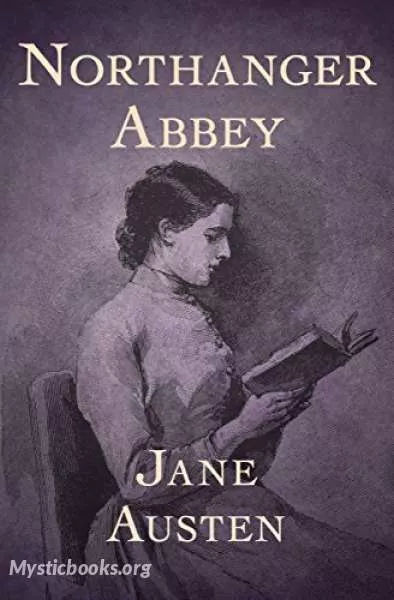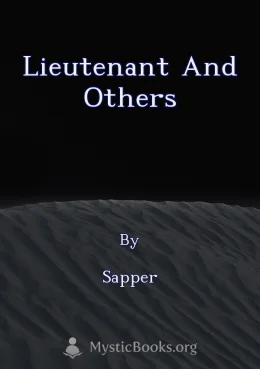
Northanger Abbey
by Jane Austen
'Northanger Abbey' Summary
Seventeen-year-old Catherine Morland is one of ten children of a country clergyman. Although a tomboy in her childhood, by the age of 17 she is "in training for a heroine" and is excessively fond of reading Gothic novels, among which Ann Radcliffe’s Mysteries of Udolpho is a favorite.
Catherine is invited by the Allens (her wealthier neighbors in Fullerton) to accompany them to visit the town of Bath and partake in the winter season of balls, theatre and other social delights. Soon she is introduced to a clever young gentleman, Henry Tilney, with whom she dances and converses. Through Mrs. Allen’s old school friend Mrs. Thorpe, she meets her daughter Isabella, a vivacious and flirtatious young woman, and the two quickly become friends. Mrs. Thorpe’s son, John is also a friend of Catherine’s older brother, James, at Oxford where they are both students.
The Thorpes are not happy about Catherine’s friendship with the Tilneys, as they correctly perceive Henry as a rival for Catherine’s affections, though Catherine is not at all interested in the crude John Thorpe. Catherine tries to maintain her friendships with both the Thorpes and the Tilneys, though John Thorpe continuously tries to sabotage her relationship with the Tilneys. This leads to several misunderstandings, which put Catherine in the awkward position of having to explain herself to the Tilneys.
Isabella and James become engaged. James’ father approves of the match and offers his son a country parson’s living of a modest sum, £400 annually, but they must wait until he can obtain the benefice in two and a half years. Isabella is dissatisfied, but to Catherine, she misrepresents her distress as being caused solely by the delay, and not by the value of the sum. Isabella immediately begins to flirt with Captain Tilney, Henry’s older brother. Innocent Catherine cannot understand her friend’s behaviour, but Henry understands all too well, as he knows his brother’s character and habits.
The Tilneys invite Catherine to stay with them for a few weeks at their home, Northanger Abbey. Catherine, in accordance with her novel reading, expects the abbey to be exotic and frightening. Henry teases her about this, as it turns out that Northanger Abbey is pleasant and decidedly not Gothic. However, the house includes a mysterious suite of rooms that no one ever enters; Catherine learns that they were the apartments of Mrs. Tilney, who died nine years earlier. As General Tilney no longer appears to be ill-affected by her death, Catherine decides that he may have murdered her or even imprisoned her in her chamber.
Catherine discovers that her over-active imagination has led her astray, as nothing is strange or distressing in the apartments. Unfortunately, Henry questions her; he surmises, and informs her that his father loved his wife in his own way and was truly upset by her death. She leaves, crying, fearing that she has lost Henry’s regard entirely. Realizing how foolish she has been, Catherine comes to believe that, though novels may be delightful, their content does not relate to everyday life. Henry does not mention this incident to her again.
James writes to inform her that he has broken off his engagement to Isabella and that she has become engaged instead to Captain Tilney. Henry and Eleanor Tilney are skeptical that their brother has actually become engaged to Isabella Thorpe. Catherine is terribly disappointed, realising what a dishonest person Isabella is. A subsequent letter from Isabella herself confirms the Tilney siblings’ doubts, and shows that Frederick Tilney was merely flirting with Isabella. The General goes off to London, and the atmosphere at Northanger Abbey immediately becomes lighter and pleasanter for his absence. Catherine passes several enjoyable days with Henry and Eleanor until, in Henry’s absence, the General returns abruptly, in a temper. He forces Catherine to go home early the next morning, in a shocking, inhospitable, and unsafe move that forces Catherine to undertake the 70 miles (110 km) journey alone.
At home, Catherine is listless and unhappy. Henry pays a sudden unexpected visit and explains what happened. General Tilney (on the misinformation of John Thorpe) had believed her to be exceedingly rich as the Allens’ prospective heiress, and therefore a proper match for Henry. In London, General Tilney ran into Thorpe again, who, angry and petty at Catherine’s refusal of his half-made proposal of marriage, said instead that she was nearly destitute. Enraged, General Tilney, (again on the misinformation of John Thorpe), returned home to evict Catherine. When Henry returned to Northanger, his father informed him of what had occurred and forbade him to think of Catherine again. When Henry learns how she had been treated, he breaks with his father and tells Catherine he still wants to marry her despite his father’s disapproval. Catherine is delighted, though when Henry seeks her parents’ approval, they tell the young couple that final approval will only happen when General Tilney consents.
Eventually, General Tilney acquiesces, because Eleanor has become engaged to a wealthy and titled man; and he discovers that the Morlands, while not extremely rich, are far from destitute.
Book Details
Authors

Jane Austen
England
Jane Austen was an English novelist known primarily for her six major novels, which interpret, critique and comment upon the British landed gentry at the end of the 18th century. Austen's plots often...
Books by Jane AustenDownload eBooks
Listen/Download Audiobook
Related books

Surprising Adventures of Baron Munchausen by Rudolf Erich Raspe
The stories about Münchhausen were first collected and published by an anonymous author in 1781. An English version was published in London in 1785, b...

Auriol, or The Elixir of Life by William Harrison Ainsworth
Auriol Darcy, the protagonist, enters into a dangerous pact with the devil to gain immense wealth in exchange for the Elixir of Life, promising him et...

Tales and Stories by Mary Wollstonecraft Shelley
This collection showcases the diverse literary talents of Mary Shelley beyond her iconic novel, Frankenstein. Within these pages, readers will encount...

Mont Oriol: or A Romance of Auvergne by Guy de Maupassant
Mont Oriol is a novel by Guy de Maupassant set in the mountainous region of Auvergne in France. The story centers on Christiane, a young bride who tra...

Uncanny Tales by Various
This collection of uncanny tales, curated by Cyril Arthur Pearson, presents a chilling selection of ghost and horror stories. The stories are meticulo...

Leave it to PSmith by P. G. Wodehouse
In this witty and entertaining tale, Freddie Threepwood and his uncle find themselves in a predicament. Freddie seeks funds to start a bookmaking busi...

Weird Tales, Volume 1 by E. T. A. Hoffmann
E. T. A. Hoffmann's _Weird Tales, Volume 1_ is a collection of fantastical stories that explore the supernatural and the creative process. These tales...

Lieutenant and Others by Sapper
Lieutenant and Others is a collection of short stories by Sapper, the pseudonym of Herman Cyril McNeile. The stories are set during World War I and ar...

House on the Marsh: A Romance by Florence Warden
In 'House on the Marsh,' an 18-year-old governess named Violet Christie arrives at an isolated mansion in the Norfolk countryside. Despite her initial...

Ligeia und Andere Novellen by Edgar Allan Poe
Diese Sammlung von sieben Novellen des amerikanischen Schriftstellers Edgar Allan Poe erkundet Themen des Todes, der Trauer und der Besessenheit. Die...
Reviews for Northanger Abbey
No reviews posted or approved, yet...